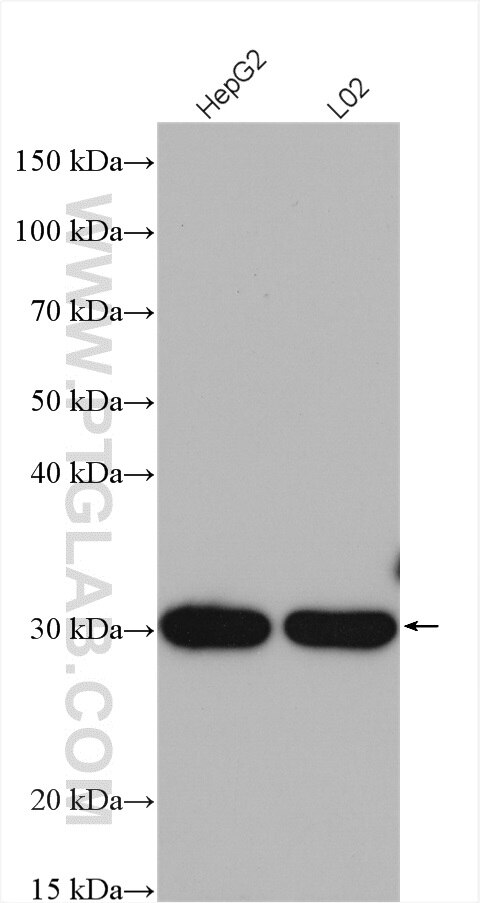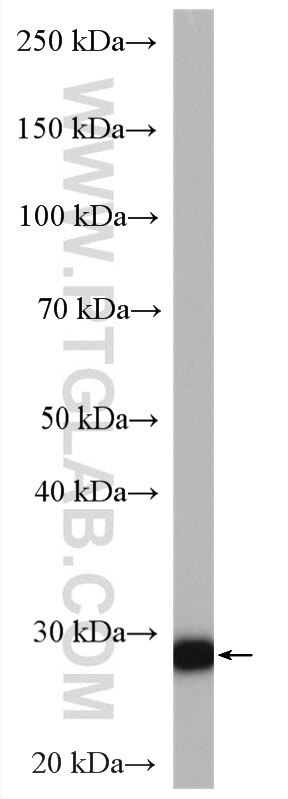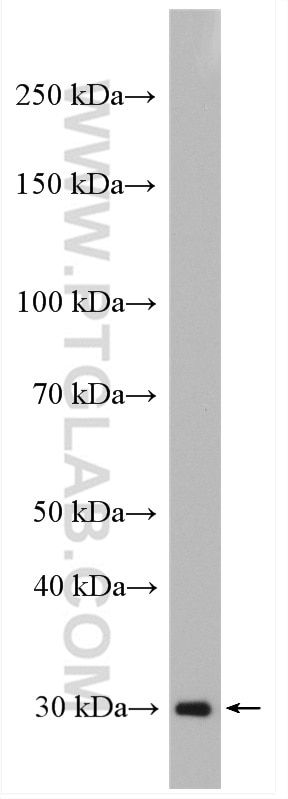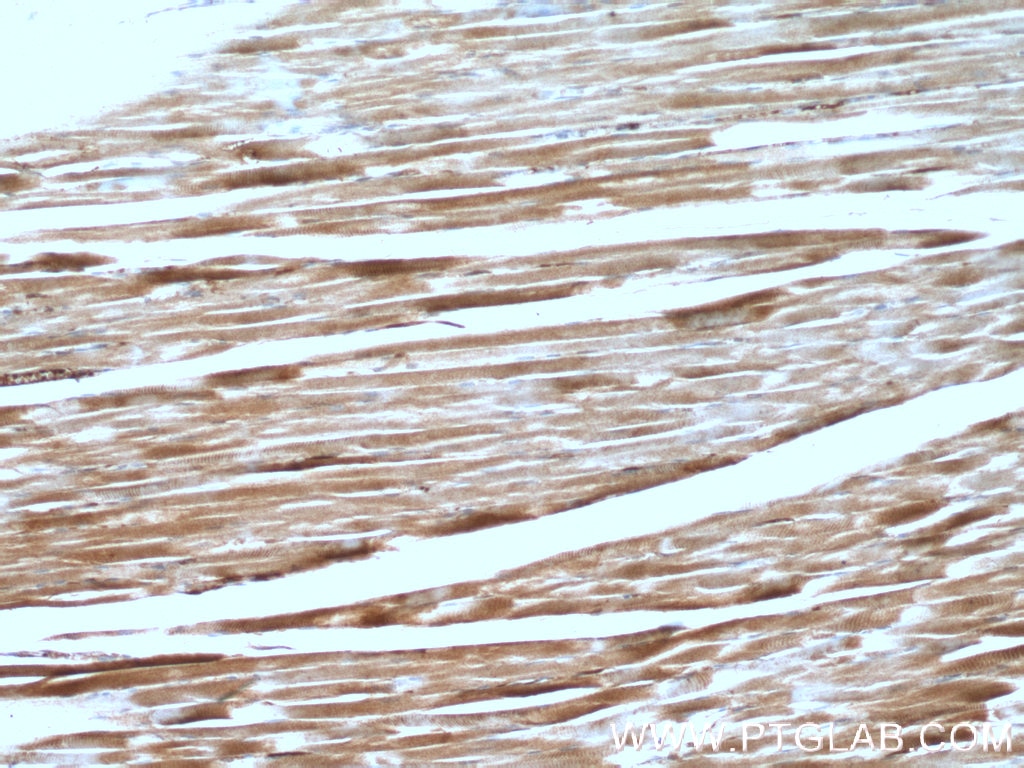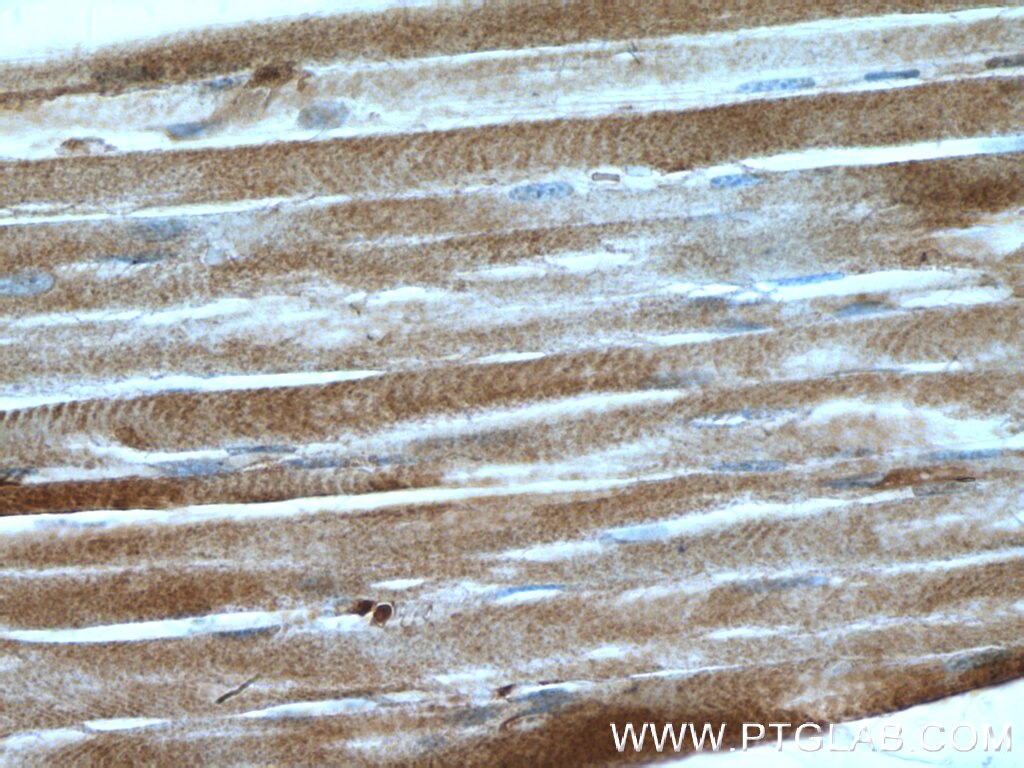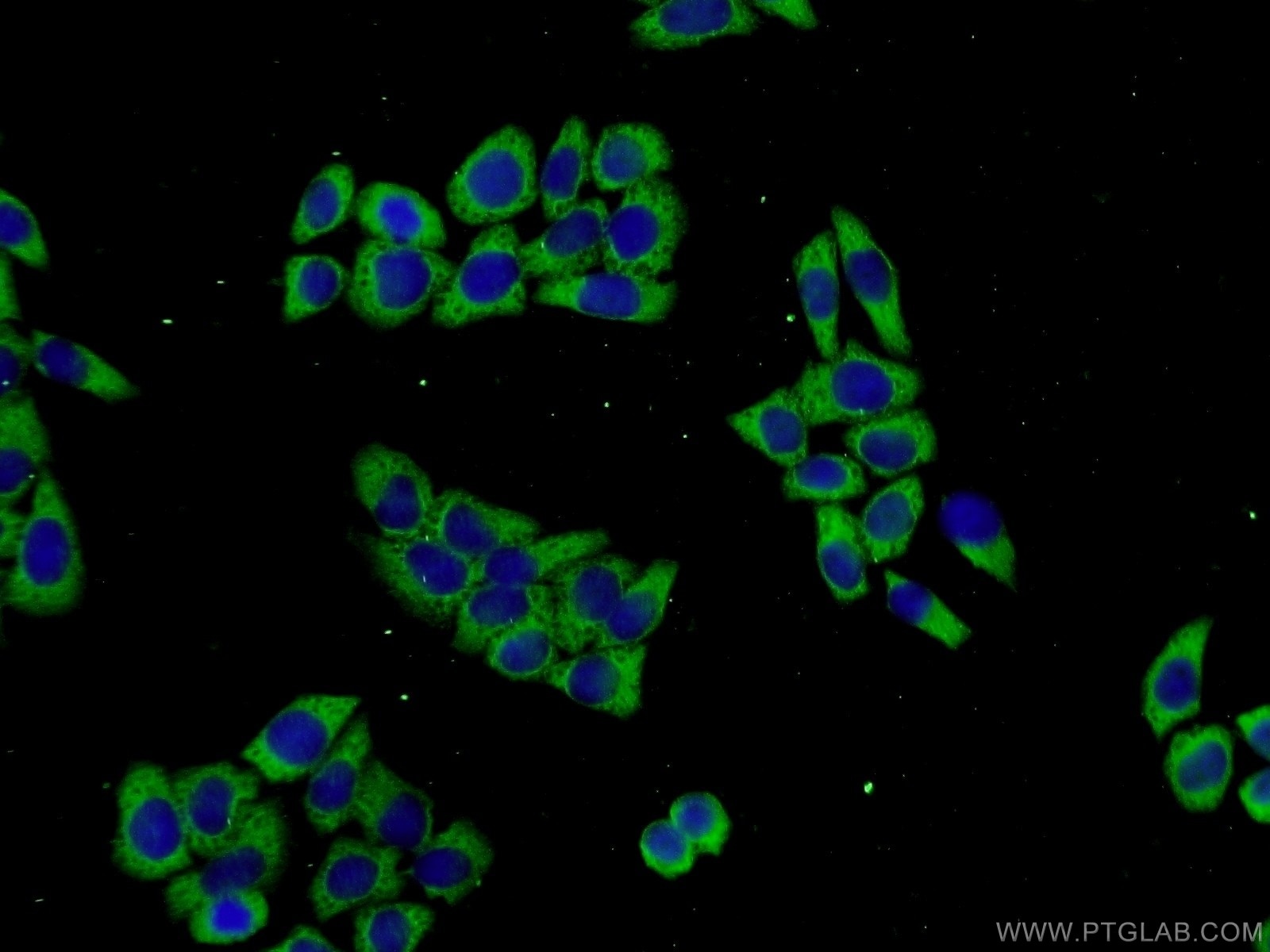Anticorps Polyclonal de lapin anti-PROSC
PROSC Polyclonal Antibody for WB, IF, IHC, ELISA
Hôte / Isotype
Lapin / IgG
Réactivité testée
Humain et plus (1)
Applications
WB, IHC, IF/ICC, ELISA
Conjugaison
Non conjugué
N° de cat : 25154-1-AP
Synonymes
Galerie de données de validation
Applications testées
| Résultats positifs en WB | cellules HepG2, cellules L02 |
| Résultats positifs en IHC | tissu de muscle squelettique humain il est suggéré de démasquer l'antigène avec un tampon de TE buffer pH 9.0; (*) À défaut, 'le démasquage de l'antigène peut être 'effectué avec un tampon citrate pH 6,0. |
| Résultats positifs en IF/ICC | cellules L02 |
Dilution recommandée
| Application | Dilution |
|---|---|
| Western Blot (WB) | WB : 1:1000-1:6000 |
| Immunohistochimie (IHC) | IHC : 1:100-1:400 |
| Immunofluorescence (IF)/ICC | IF/ICC : 1:20-1:200 |
| It is recommended that this reagent should be titrated in each testing system to obtain optimal results. | |
| Sample-dependent, check data in validation data gallery | |
Applications publiées
| WB | See 2 publications below |
Informations sur le produit
25154-1-AP cible PROSC dans les applications de WB, IHC, IF/ICC, ELISA et montre une réactivité avec des échantillons Humain
| Réactivité | Humain |
| Réactivité citée | Humain, souris |
| Hôte / Isotype | Lapin / IgG |
| Clonalité | Polyclonal |
| Type | Anticorps |
| Immunogène | PROSC Protéine recombinante Ag18369 |
| Nom complet | proline synthetase co-transcribed homolog (bacterial) |
| Masse moléculaire calculée | 275 aa, 30 kDa |
| Poids moléculaire observé | 30 kDa |
| Numéro d’acquisition GenBank | BC012334 |
| Symbole du gène | PROSC |
| Identification du gène (NCBI) | 11212 |
| Conjugaison | Non conjugué |
| Forme | Liquide |
| Méthode de purification | Purification par affinité contre l'antigène |
| Tampon de stockage | PBS avec azoture de sodium à 0,02 % et glycérol à 50 % pH 7,3 |
| Conditions de stockage | Stocker à -20°C. Stable pendant un an après l'expédition. L'aliquotage n'est pas nécessaire pour le stockage à -20oC Les 20ul contiennent 0,1% de BSA. |
Informations générales
Human Pyridoxal 5′-phosphate-binding protein (PLPBP; previously proline synthase cotranscribed homolog, PROSC) was first described in 1999 and was demonstrated to be ubiquitously expressed in many tissues. PROSC is ubiquitously expressed in human tissues and is highly conserved throughout evolution. PROSC deficiency could therefore markedly increase free cellular PLP levels (PMID: 31825581, 27912044).
Protocole
| Product Specific Protocols | |
|---|---|
| WB protocol for PROSC antibody 25154-1-AP | Download protocol |
| IHC protocol for PROSC antibody 25154-1-AP | Download protocol |
| IF protocol for PROSC antibody 25154-1-AP | Download protocol |
| Standard Protocols | |
|---|---|
| Click here to view our Standard Protocols |
Publications
| Species | Application | Title |
|---|---|---|
Int J Mol Sci Translation Fidelity and Respiration Deficits in CLPP-Deficient Tissues: Mechanistic Insights from Mitochondrial Complexome Profiling |
